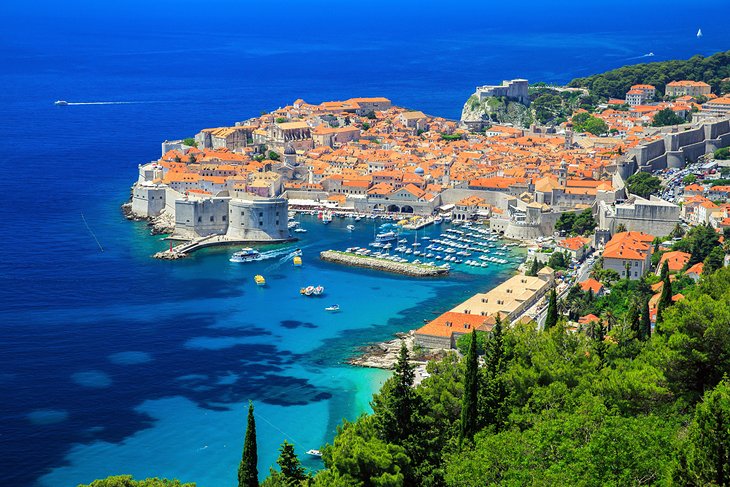
Application deadline
Application for the Locomotion summer school is open till 01st of July 2022.
Chosen candidates should be informed till 15th of July 2022.
How to apply ?
In the application form you will need to submit your CV (doc. or pdf) and a motivation letter (doc. or pdf). Motivation letter should be a maximum of 2 A4 pages where you need to show why you are the best candidate for the LOCOMOTION Summer school. Be concise with your background and expectations you have from Locomotion Summer school.
Scope
Who is the course aimed at?
To students who want to start their pre-doctoral training in the field of integrated energy-economy-environment assessment models and (E3- IAMs) researchers in general who want to know the WILIAM model.
Objective :
Give initial training to pre-doctoral students (last year master students with the potential of starting a PhD) and PhD students, so that they can develop their doctoral thesis in the field of WILIAM, its possible improvements and the exploitation of its results for different cases of policies and scenarios. Priority should be given to PhD students while last year master students will need to be carefully examined, in order to be sure whether they can follow the course.
The LOCOMOTION consortium encourages female participants to apply.
At the end of the course, students should be able to work with the WILIAM model to obtain results and simulate policies and scenarios. Those researchers who know other IAMs will be able to know the different characteristics of WILIAM and take advantage of its potentialities.
Schedule
Agenda:
|
4 September |
Day 0 - Sunday |
|
|
|
18:20 |
IUC building (patio) : Welcome reception and Summer School opening, followed by the city tour on foot. |
|
5 September |
Day 1 - Monday |
Official opening ceremony |
|
9:00 - 9:45 |
Introduction from a logistic point of view, ice breaker. |
|
|
9:45 - 10:45 |
Introduction into the Planetary Boundaries & SDGS. |
|
|
10:45 - 11:15 |
Coffee break |
|
|
11:15 - 12:00 |
Introduction into policy making & NGO perspective (why does it matter). |
|
|
12:00 - 13:00 |
Introduction into the LOCOMOTION project and WILIAM model. |
|
|
13:00 - 14:00 |
Lunch |
|
|
14:00 - 15:00 |
||
|
6 September |
Day 2 – Tuesday |
IAM models and energy modelling |
|
9:00 - 10:45 |
Introduction to energy modelling with reflections to E3-IAMs. Energy models from idealistic concepts and practical realizations. |
|
|
10:45 - 11:15 |
Coffee break |
|
|
11:15 - 13:00 |
Investments into national energy and power infrastructure and the need for optimization. Optimization techniques and their applicability in energy and power systems. |
|
|
13:00 - 14:00 |
Lunch |
|
|
14:00 - 16:00 |
Unsustainability issues: Peak Oil, Peak Gas, Material Resources, EROI. Optimization of (national) energy systems using simulations. Flexibility of energy systems at hourly level. |
|
|
7 September |
Day 3 – Wednesday |
System Dynamics |
|
9:00 - 10:45 |
Introduction to modelling and simulation with system dynamics. Dynamic models, feedbacks, stocks and flows, dynamic patterns |
|
|
10:45 - 11:15 |
Coffee break |
|
|
11:15 - 13:00 |
Structure and behavior of dynamic systems . Fundamental modes of system behavior. |
|
|
13:00 - 14:00 |
Lunch |
|
|
14:00 - 16:00 |
Introduction to the Vensim Software. |
|
|
8 September |
Day 4 – Thursday |
Introduction to the WILIAM model and resources module |
|
9:00 - 10:45 |
Introduction WILIAM. Previous models: WoLim and MEDEAS. Aims of WILIAM. |
|
|
10:45 - 11:15 |
Coffee break |
|
|
11:15 - 13:00 |
General overview of the model, modules and interactions. |
|
|
13:00 - 14:00 |
Lunch |
|
|
14:00 - 16:00 |
The resource module. energy resources, resource reserves, TRE, need for minerals from renewables. |
|
|
9 September |
Day 5 – Friday |
The economic module |
|
9:00 - 10:45 |
Theoretical explanation of the economic module of WILIAM (main features of the WILIAM economic module). |
|
|
10:45 - 11:15 |
Coffee break |
|
|
11:15 - 13:00 |
Diving into the economic module of WILIAM (see how the module works in practical terms and look at all the interrelationships among the different sub-modules. |
|
|
13:00 - 14:00 |
Lunch |
|
|
14:00 - 16:00 |
Lab session and working hands-on with a simple macroeconomic model in Vensim. |
|
|
10 September |
Day 6 – Saturday |
Social program |
|
Departure at 9.45h from Akademis (Student Dorm). |
||
|
11 September |
Day 7 – Sunday |
Free day |
|
12 September |
Day 8 – Monday |
Energy module |
|
9:00 - 9:45 |
Introduction to Energy Modelling (Types of energy models, main concepts of conversion chains and energy balances). |
|
|
9:45 - 10:45 |
WILIAM Energy Module Part I (Overview of WILIAM energy module, end-use submodule). |
|
|
10:45 - 11:15 |
Coffee break |
|
|
11:15 - 13:00 |
WILIAM Energy Module Part II (Transformation sub-module, Capacity Sub-module, Variability Sub-module). |
|
|
13:00 - 14:00 |
Lunch |
|
|
14:00 - 16:00 |
Hands-on session on WILIAM energy module, all presenters helping with VENSIM. |
|
|
13 September |
Day 9 – Tuesday |
Environmental module |
|
9:00 - 10:45 |
Introduction to land, water and climate subsytems : |
|
|
10:45 - 11:15 |
Coffee break |
|
|
11:15 - 13:00 |
The WILIAM environment module : |
|
|
13:00 - 14:00 |
Lunch |
|
|
14:00 - 16:00 - Hands-on |
Modelling land use scenarios : |
|
|
14 September |
Day 10 – Wednesday |
The social and demographic modules of WILIAM |
|
9:00 - 10:45 |
Conceptualising Society and Demography (Social and Demographic Indicators) : |
|
|
10:45 - 11:15 |
Coffee break |
|
|
11:15 - 13:00 |
Participatory modelling of Society and Demography (Causal loop diagram) : |
|
|
13:00 - 14:00 |
Lunch |
|
|
14:00 - 16:00 |
Programming demographics : |
|
|
15 September |
Day 11 – Thursday |
Baseline and Policy scenarios |
|
9:00 - 10:45 |
Open debate (round table of experts): paths towards sustainability, are they possible? |
|
|
10:45 - 11:15 |
Coffee break |
|
|
11:15 - 13:00 |
Course evaluation, final conclusions and farewell. |
|
|
13:00 - 14:00 |
Lunch |
Programme
Date of Event: 4 September - 15 September 2022
Brief Description:
The main topic of the summer school is energy and climate planning and modelling of smart systems and exchange of experiences with experts
in the field. A special focus will be on the improved integrated assessment models (IAMs), with improved data management, policy and
scenario assessment, as well as systematic dynamic modelling of relevant environmental, economic, social, technological and biophysical
variables. Finding a new and improved representation of smart energy systems in IAMs is a key issue in calculating policy scenarios and their
emissions.
Lecturers:
|
Name |
Institution |
Field |
|
1. Prof.dr.sc. Neven Duić |
University of Zagreb, Faculty of Mechanical Engineering and Naval Architecture, Croatia |
Energy systems modelling |
|
2. Dr. Inigo Capellan Perez |
University of Valladolid, Spain |
Energy, Economy and System Dynamics |
|
3. Asst.prof.dr.sc. Tomislav Pukšec |
University of Zagreb, Faculty of Mechanical Engineering and Naval Architecture, Croatia |
Energy systems modelling |
|
4. Prof.dr.sc. Simone D'Alessandro |
University of Pisa, Italy |
Economic modelling |
|
5. Professor Inaki Arto |
Basque Centre for Climate Change, Spain |
Energy, Environmental, Economic modelling |
|
6. Professor Luis Javier Miguel González |
University of Valladolid, Spain |
Energy, Economy and System Dynamics |
|
7. Dr. Robert Oakes |
United Nations University, Japan |
Social and demographic modelling |
|
8. Lukas Eggler, MSc, BA |
Austrian Energy Agency, Austria |
Energy systems modelling |
|
9. Prof. Dr. Sci Natasa Markovska |
Research Center for Energy and Sustainable Development - Macedonian Academy of Sciences and Arts, Skopje, North Macedonia |
Baseline and Policy scenarios |
|
10. Prof.dr.sc. Nikola Rajaković |
University of Belgrade, Faculty of Electrical Engineering, Serbia |
Energy systems modelling |
|
11. Dr.sc. Ilija Batas Bjelić |
Institute of Technical Sciences of SASA, Serbia |
Energy systems modelling |
|
12. Dr.sc. Margarita Mediavilla |
University of Valladolid, Spain |
Environmental modelling |
|
13. Paola López Muñoz |
University of Valladolid, Spain |
Energy, Economy and System Dynamics |
|
14. Noelia Ferreras Alonso |
CARTIF, Spain |
Climate and sustainable policies modelling |
|
15. Tomás Calheiros |
University of Lisbon, Portugal |
Climate Change Impact Adaptation and Modelling |
|
16. Nathalie Wergles |
University of Valladolid, Spain |
Baseline and Policy scenarios |
Invited lecture
Prof. Şiir KILKIŞ
The Scientific and Technological Research Council of Turkey (TÜBİTAK)
Ankara, Turkey

Şiir Kılkış is alumna of KTH Royal Institute of Technology and Georgetown University, where she graduated magna cum laude with honors as the gold medalist in Science, Technology, and International Affairs. She serves as a Lead Author in the Intergovernmental Panel on Climate Change Sixth Assessment Report (AR6) Working Group III on Mitigation of Climate Change with a focus on urban systems. She is Senior Researcher and Advisor to the President at The Scientific and Technological Research Council of Turkey (TUBITAK). As Associate Professor in Energy Systems Engineering, she is the coordinator of sustainable development in the Earth System Science Graduate Program of Middle East Technical University. Based on her research work, she takes place among the world’s top 2% scientists in the areas of energy, environmental science, and emerging/strategic technologies and is an International Scientific Committee member of the SDEWES Center. Her research accomplishments include the SDEWES Index benchmarking 120 cities, novel net-zero district concepts, and the Rational Exergy Management Model to curb CO₂ emissions. She is an editorial board member of The Journal of Sustainable Development of Energy, Water & Environment Systems, Smart Energy, Energy Storage and Saving as well as Guest Editor in Energy Conversion and Management. She is a member of the Earth Commission Working Group on Translation and Methods and Steering Committee of Future Earth Urban Knowledge Action Network.
Effective Mitigation of Climate Change: Modelling Advances and Priorities for AR7
Effective climate mitigation requires increasing renewable energy penetration, improving system integration, increasing co-benefits for sustainability, and steering in the direction of a safe and just corridor. Based on the mitigation focused modelling contributions to the Sixth Assessment Report of the Intergovernmental Panel on Climate Change, illustrative mitigation pathways have emphasized the importance of renewable energy, low demand, and ways of shifting development pathways towards sustainability. Urban emissions scenarios were also provided for the first time. In looking ahead to the next assessment cycle, more needs to be done considering at least five priorities: 1) ensuring cross-sectoral integration in modelling for more energy system flexibility, 2) utilizing more granular inputs related to land, water and socio-ecological systems, 3) being explicit on the urban share of emissions across scenarios, 4) better linking scenarios with co-benefits, and 5) ensuring comparability with earth system boundaries across domains. In addition to advances in climate science and feedbacks, scenario based experiments in the next Coupled Model Intercomparison Project could be designed to account for these opportunities. This invited lecture will represent advances and priorities in ways that relate with the modules of the summer school for the new WILIAM model followed by an interactive discussion.
Venue
Inter-University Centre Dubrovnik : www.iuc.hr
Don Frana Bulića 4
HR-20000 Dubrovnik, Croatia
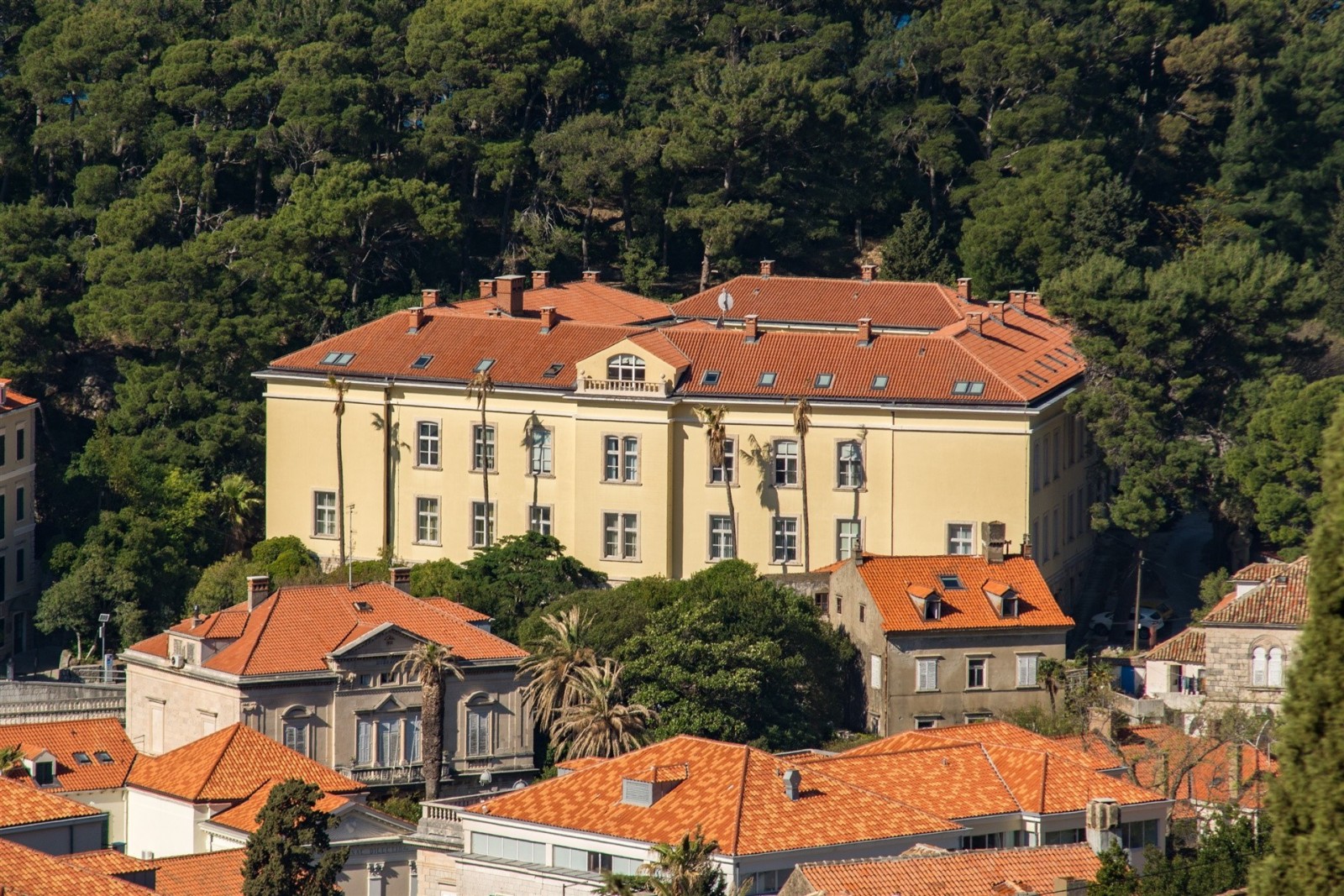
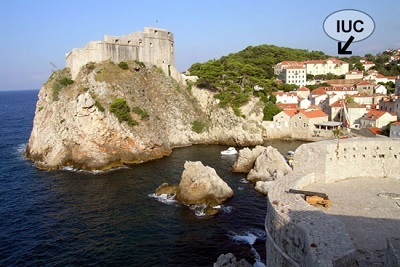
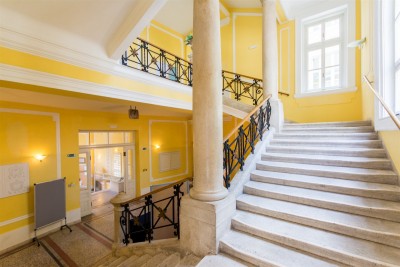
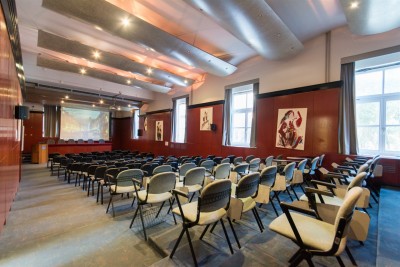
Inter-University Centre Dubrovnik is owned by University of Zagreb (co-organizer of this event).
Useful links to explore while planning your trip to Dubrovnik:
Dubrovnik Tourist Board: www.tzdubrovnik.hr
Dubrovnik Card: www.dubrovnikcard.com
Accomodation
LOCOMOTION Summer School participants will have the accommodation and breakfast booked at Student dormitory Dubrovnik (single rooms) (Studentski dom Dubrovnik): www.scdu.hr. Accommodation costs will be covered by the organizers.
Address: Marka Marojice 2B, 20000 Dubrovnik.
Lunch and coffee breaks will be covered at the Summer School venue by the organizers.
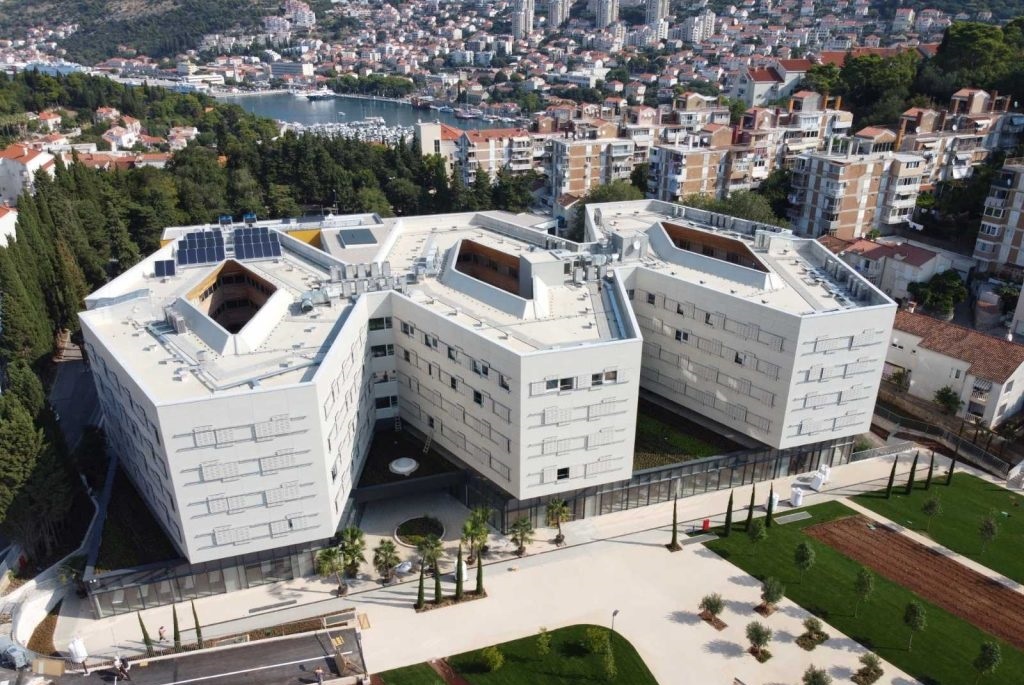
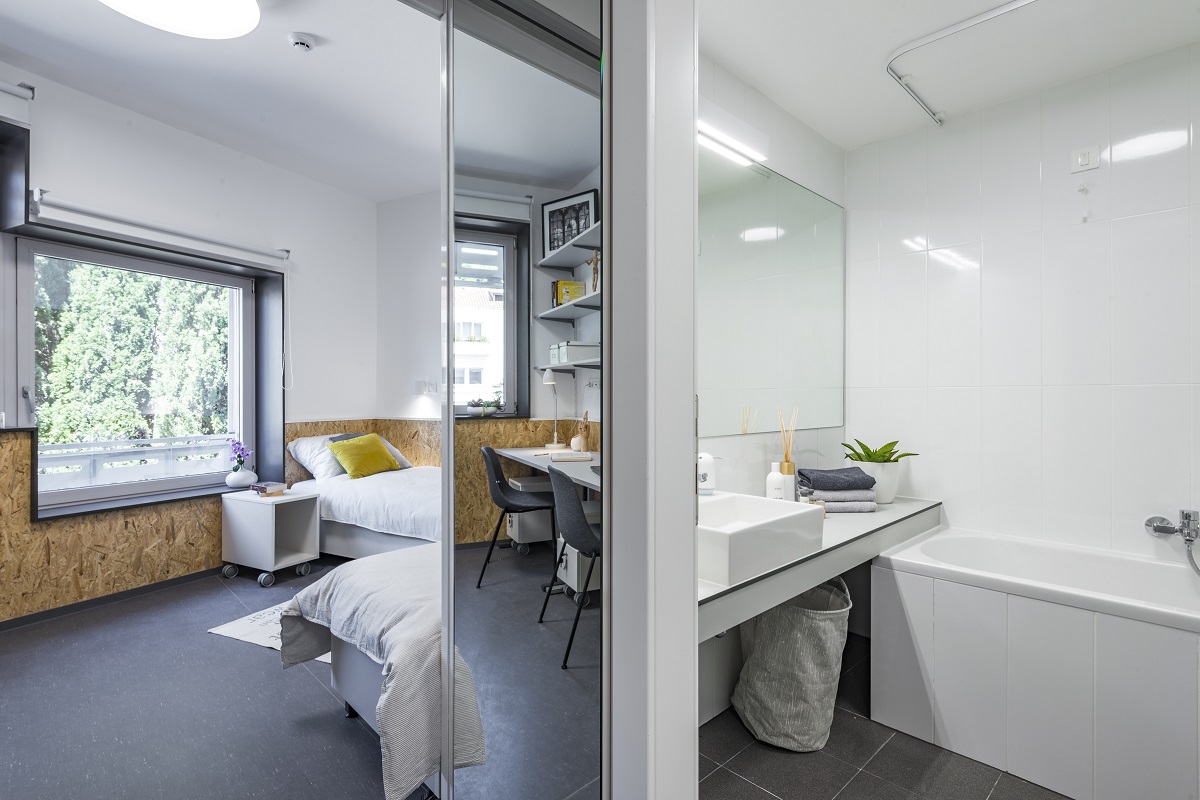
Fee
LOCOMOTION Summer School fee: 0 EUR.
